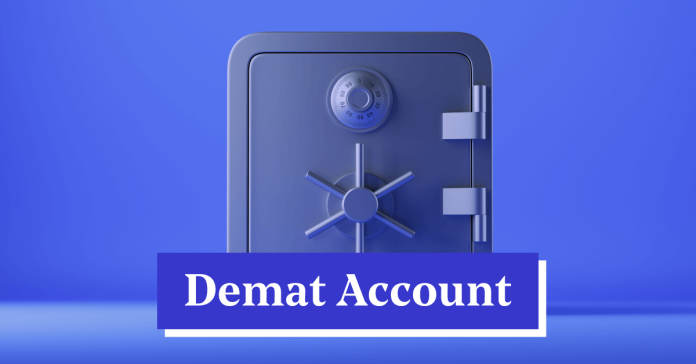In India, both residents and non-resident Indians are free to explore and invest in stock markets. The difference is that the residents of India use Regular free Demat account opening to trade securities whereas the NRIs use NRI Demat Accounts to navigate the market. This article will help you understand the major differences between these two Demat Accounts.
What is an NRI Demat Account?
Before delving into the differences between Regular and NRI Demat Accounts, let’s first understand certain things about the NRI Demat Account. As per the Foreign Exchange Management Act (FEMA), NRIs are required to open an NRI Demat Account to trade in the secondary market. FEMA is in charge of regulating all foreign transactions in India. Thus, NRIs are required to comply with all the rules and regulations put forth by FEMA, while trading securities in Indian stock markets.
NRIs can choose from two principal depositories – CDSL or NSDL to open an NRI Demat account. Regardless of their choice, the account must be opened with a depository participant, such as banks, stock brokers, and other financial institutions affiliated with CDSL or NSDL. Like Indian residents, NRIs are required to have a bank account and provide basic documentation as proof of their identity and residency during the account set-up process. NRIs can route an investment via two types of bank accounts – Non-Resident External (NRE) or Non-Resident Ordinary (NRO) accounts.
NRIs have the option to open their Demat accounts under the RBI Portfolio Investment Scheme (PINS) or via ordinary ways (Non-PINS). Demat account under PINS grants access to NRIs to trade in the secondary market stocks in India. Also, if NRIs want to invest in index Exchange Traded Funds (ETFs), they will be required to do so by using the PINS Demat account. Non-PINS account holders can invest in initial public offerings (IPOs) or mutual funds but are restricted to invest in secondary market securities.
NRIs have the option to open two types of Demat Accounts –
Repatriable Demat Account – This type of account is good for NRIs looking to invest in Indian stock markets from anywhere in the world. Any transaction made by the NRI will be reflected in their Demat account. It is important to note that NRIs are required to link their Repatriable Demat Account to a Non-Resident External (NRE) bank account.
Non-Repatriable Demat Account – The NRIs holding this type of account cannot transfer their funds abroad as it is required to be linked to a Non-Resident Ordinary (NRO) account.
Difference Between NRI and Regular Demat Account –
| Factors | Regular Demat Account | NRI Demat Account |
| Eligibility | Only for citizens residing in India | Non-Resident Indians (NRIs) |
| Account Types | Ordinary Account | Repatriable Demat Account
Non-Repatriable Demat Account |
| Currency | Indian Currency (INR) | Indian Currency (INR) or Foreign Currency depending on the type of account |
| Linked Bank Accounts | Savings Account | Non-Resident External (NRE) or Non-Resident Ordinary (NRO) Account. |
| Charges | Same | Same |
| Documentation | Basic KYC Documents required | Additional Documents such as passports, visas and more are required |
| Services | Same | Same |
| Taxation | As per the Indian Laws | Indian Holdings – As per the Indian Laws
Foreign Holdings – As per the Tax Implications in the home country |
| Investment Limitations | No specific limitations | Susceptible to regulations set by
1. Reserve Bank of India (RBI) 2. Securities And Exchange Board of India (SEBI) |
| Nominations | Available | Available |
| Existing Accounts Conversion | – | Resident Demat account can be converted into an NRI Demat Account once the status of residency is changed |
Basic NRI Demat Account Opening Process Details
- NRIs can open an NRI Demat Account by providing basic documents like PAN, proof of residence, bank statements, etc.
- They are also required to submit copies of their passport along with their employment visa or work permit (applicable as per the situation). Also, they have to submit visa details, such as the visa number or visa expiry date.
- NRIs have to select the type of Demat account they want to open – Repatriable Demat Account or Non-Repatriable Demat Account.
- The Repatriable Demat Accounts must be linked to a Non-Resident Account (NRE) and the Non-Repatriable Account must be linked to a Non-Resident Ordinary Account (NRO).
- It is important to note that transfers of equities or shares as gifts or outside-market transactions to the NRI Demat Account are not permitted as per the rules of the Reserve Bank of India (RBI). It can be only done by trading in the Indian stock market.
Final Words
The process of opening an NRI Demat Account depends on the depository participant you choose. If you are new to the investment world and are looking to open an NRI Demat account, choosing a full-service broker like Choice as your DP is preferable to experience an easy set-up process. With more than 30 years of experience in providing exceptional financial services, Choice is a trusted partner for investors. Take advantage of their free Demat account opening process and start your journey today!


